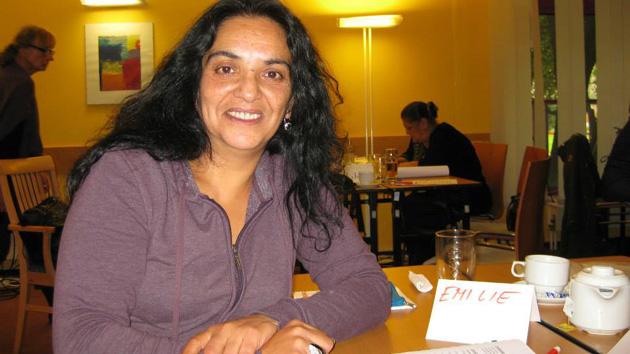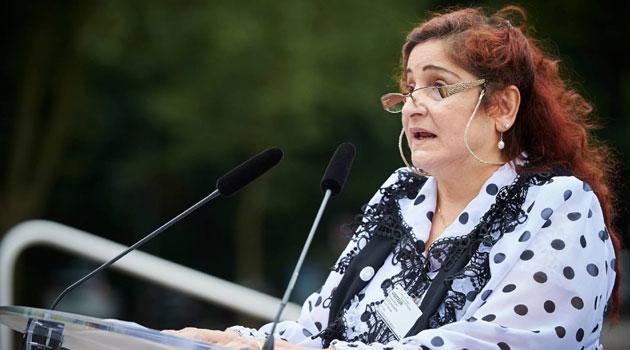Czech Roma to mark International Roma Holocaust Remembrance Day at Auschwitz memorial

Tomorrow, Tuesday, 2 August, Roma people from all over Europe will mark International Roma Holocaust Remembrance Day. On the night of 2 August 1944 and into the early morning hours of 3 August 1944, a total of 2 898 Sinti (German Roma) and Roma children, men and women were murdered in the gas chambers of the Nazi concentration and extermination camp of Auschwitz-Birkenau in Poland.
Traditionally, several hundred people gather for the commemoration ceremony at the Auschwitz memorial, and Czech Roma will attend this year. The trip was organized by Emílie Horáčková from the Bachtale association in Mimoň.
For the Roma of Europe, Auschwitz camp was the biggest concentration camp in which they were imprisoned. On the basis of an order by SS Reichsführer Himmler dated 29 January 1943, roughly 20 000 Romani people were forcibly transported to Auschwitz from Belgium, Bohemia and Moravia, northern France, the Netherlands, Poland, the Slovak State and the states of the former Soviet Union.
Most of those imprisoned there perished in the gas chambers. Nazi Germany’s annihilation policy led to the deaths of an estimated half a million Roma and Sinti from all over Europe.
Some estimates say as many as 800 000 Holocaust victims were Romani, a number that represent anywhere between one-quarter to one-half of the prewar Roma population. News server Romea.cz has interviewed Emílie Horáčková about her visit to the memorial.
Q: What was the first impulse for organizing this travel to Auschwitz?
A: I am the daugher of a Czech Rom who survived the Holocaust of the Second World War. This is my personal initiative, because my father was the only member of his family to survive the concentration camp at Auschwitz when he was 12 years old. At the end of the war he was transferred from Auschwitz to Buchenwald and then to Dachau, where he was saved by the American Army. I have a personal relationship to that part of history. It is only now, at the age of 52, that I am able to commemorate the places my father lived during the war.
Q: Who is in the group that is planning to visit the memorial at Auschwitz?
A: I let my loved ones and the people from our association, Bachtale, know about this plan, and they said they were interested in participating in the trip. These are Roma, my friends. The adults will pay their own way and I have raised money from donors so all our children can join us, and we would like to thank those donors.
Q: What is their motivation for going there?
A: The truth about the Roma Holocaust has been suppressed until recently. It is only in the last few years that it has begun to be spoken about publicly. The young generation of Roma knows almost nothing about this, it is not taught to them at school. Moreover, here in the Czech Republic there are many Roma who originally come from Slovakia, and most of their forebears were spared the horrors of the concentration camps. It is necessary, however, that they strengthen their solidarity with other Roma, even those who are not their blood relations, and that they strengthen their identity toward the Roma nation as a whole. Especially now, it is necessary to remember the past, our history, because we are witnessing a growth in radical, racist opinions in our society, whether they be against refugees or against Roma. We are concerned lest the situation [of the Holocaust] repeat itself.
Q: How do you plan to honor the victims of the Holocaust?
A: We will represent Roma from the Czech Republic. We are making our own wreaths and we plan to lay them at the memorial as an expression of regret for the fates of the innocent lives that were destroyed there. We are also making fabric roses – black ones, white ones, and ones in the colors of the Roma flag. The black rose symbolizes the tragic past, the white rose symbolizes innocence, and the roses in the colors of the flag symbolize our Roma solidarity and the fact that we will never forget what happened. Next year we would also like to visit this site of horrors with Roma youth in order to awaken in them a sense of co-responsibility for the fate of our nation.
